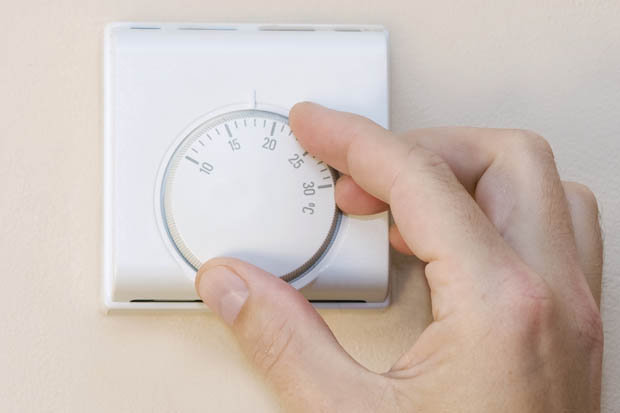My name is Helen Nugent and yesterday I turned the heating on.
I daren’t tell my dad, a man who resolutely refuses to even approach the thermostat until November because ‘once you turn on the radiators there’s no going back’. I was nine-years-old before I realised we had central heating. During the bitter Northern winter months, my mum would lay mine and my sister’s clothes in front of the fire before we got up for school. I have many memories of getting dressed in the half-light, silently lamenting the face that our radiators were just for show. I’m still cross about that.
Now I fear the cold. So it felt good to hear the familiar whumph of the heating firing up yesterday morning. I swept away the last vestiges of guilt about flicking the switch before September is out, reminding myself that I live in the shadow of the Pennines in a town with its own micro-climate. And there was the usual worry that, following six months twiddling its imaginary thumbs, the boiler might not actually work.
Which brings me to some new research from Gocompare.com. According to the comparison site, which reviewed 429 home insurance policies, nearly a quarter did not come with home emergency cover. Of the 77 per cent of plans which did offer it, a fifth automatically included cover for home emergencies while just over half provided cover as an optional extra. Of those policies offering cover, the majority (98 per cent) will pay out costs for an emergency breakdown of a home heating system.
I know that reading the fine print of an insurance document is only marginally more appealing than sticking a fork in your leg, but scrutinising the nitty gritty is vital. Boilers are one of the most expensive items in your home to replace or repair. A broken-down boiler costs on average £344 to fix but many people don’t give their boiler a second’s thought until it fails.
So, before your boiler gives up the ghost this winter, make sure to check your insurance plan to see if it includes home emergency cover.
Under home emergency cover, insurers typically give customers access to a 24-hour helpline which provides a call-out service for emergency repairs by local tradesmen at an agreed charge. An emergency is defined as a sudden, unforeseen situation which, if not dealt with quickly, would leave your home unsafe, unsecure, damaged or cause further damage, or cause risk to you or your family. The types of emergency incidents covered can include boiler breakdown, the failure of your home’s electric or gas supply, plumbing and drainage issues, home security issues (for example, damaged windows or locks as a result of a burglary) and the cost of dealing with vermin infestations such as wasps, rats or squirrels.
Home emergency cover generally covers the costs of contractors’ call-out and labour charges and for parts and materials up to the sum insured. Policy pay-outs are capped with most policies (93 per cent) providing maximum cover levels of between £500 and £1,000 (including VAT).
There’s a catch, though. Cover for equipment which has not been properly installed, maintained or repaired is usually excluded. Therefore, policies will only cover failure of boilers or heating systems when they have been inspected or serviced by a qualified person within the preceding 12 months. Which reminds me, I must make an appointment to get my boiler checked out.
Helen Nugent is Online Money Editor of The Spectator






Comments